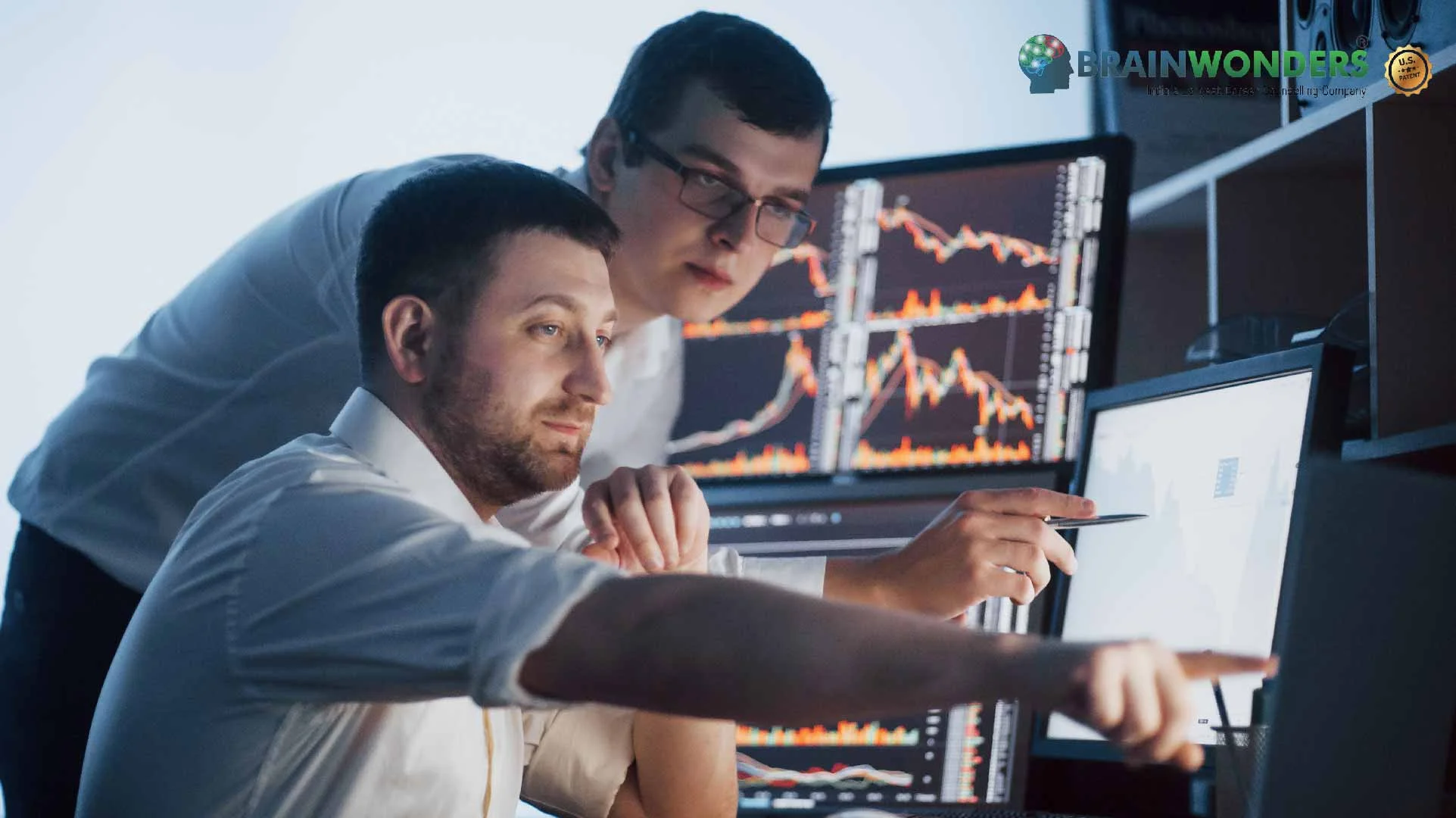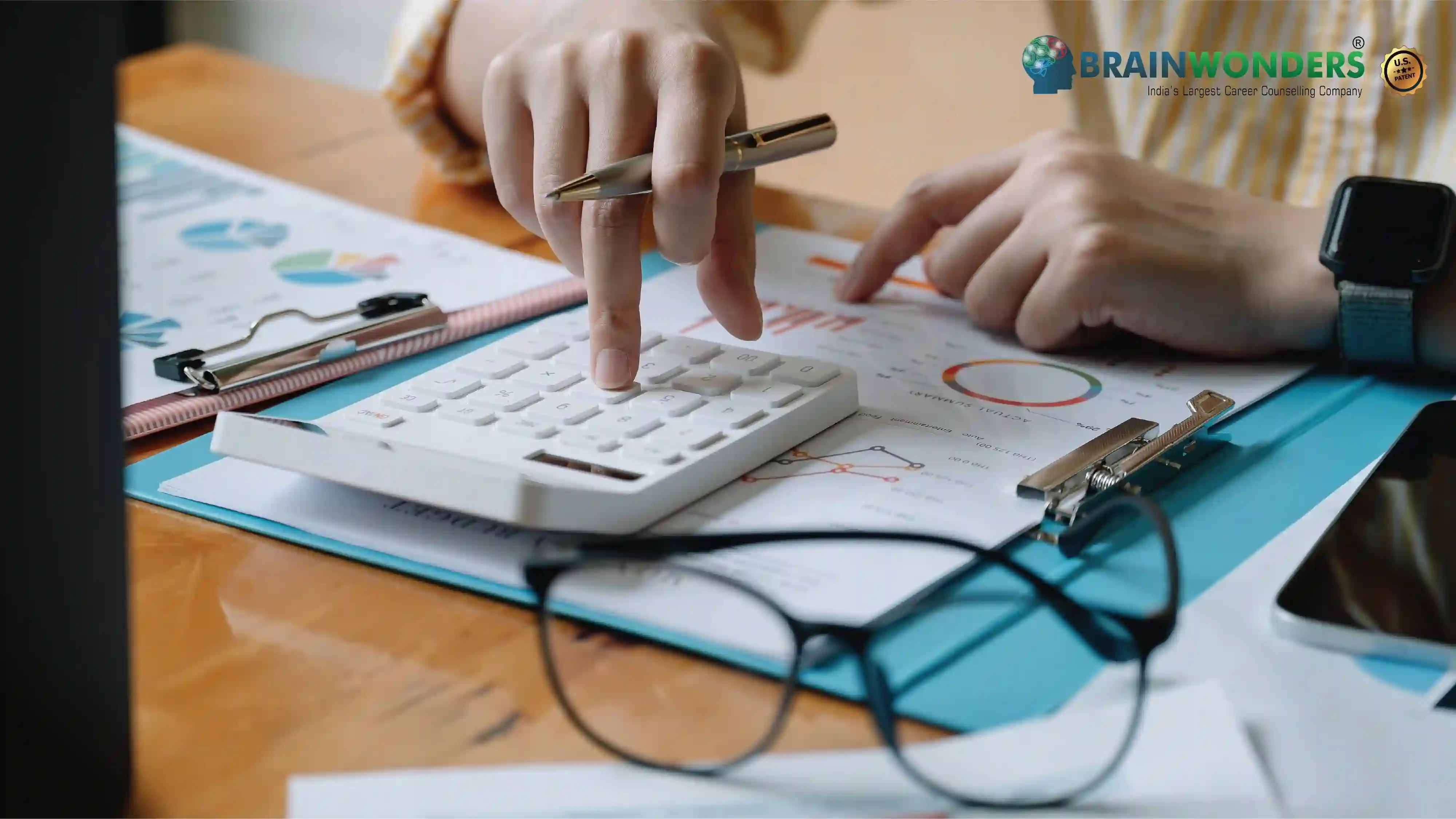How to become a Securities and Commodities Trader
Overview, Courses, Exam, Colleges, Pathways, Salary

Overview
Who is Securities and Commodities Trader ?
A securities and commodities trader is an individual or entity buying and selling financial instruments and commodities in financial markets. These professionals operate in the global marketplace, executing trades for clients or their accounts to generate profits. They work in various financial institutions, such as investment banks, brokerage firms, hedge funds, or independent traders.
Securities traders primarily deal with stocks, bonds, options, and other financial instruments, while commodities traders focus on commodities like gold, oil, agricultural products, or metals. Their primary goal is to capitalize on price fluctuations and market trends, aiming to buy low and sell high or vice versa.
Successful traders possess strong analytical skills, knowledge of market dynamics, and the ability to interpret financial data to make informed decisions. They use trading platforms, computer systems, and algorithms to execute trades efficiently. Risk management is crucial to their work, as traders must carefully assess and mitigate potential financial risks.
Typical day at work
What does Securities and Commodities Trader do?
Securities and commodities traders execute buy and sell orders for financial instruments and commodities in the global marketplace. Here are some of the critical tasks they perform:
- Market Analysis: Traders conduct thorough research and analysis of various financial markets, monitoring price movements, economic indicators, news events, and other factors that can impact the value of securities or commodities.
- Trade Execution: Based on their analysis, traders decide to buy or sell securities or commodities on behalf of clients or their accounts. They execute trades using trading platforms, computer systems, or through direct contact with brokers.
- Risk Management: Traders assess and manage financial risks associated with their positions. They implement risk management strategies such as setting stop-loss orders, diversifying portfolios, and monitoring market volatility to protect against potential losses.
- Trade Monitoring: Traders continuously monitor their positions, tracking market trends, news developments, and changes in economic conditions. They adjust their trading strategies accordingly to maximize profits or minimize losses.
- Relationship Management: Traders may interact with clients, brokers, and other market participants to gather information, negotiate trade terms, and build relationships. They may also provide market insights, recommendations, and updates to clients.
- Compliance and Regulation: Traders must adhere to legal and regulatory requirements governing securities and commodities trading. They ensure compliance with rules, regulations, and ethical standards set by relevant authorities.
- Continuous Learning: Traders update themselves with market trends, new trading strategies, and emerging technologies. They attend seminars, read research reports, and engage in ongoing education to enhance their trading skills and knowledge.
Abilities and Aptitude needed
What are the skills, abilities & aptitude needed to become Securities and Commodities Trader?
Becoming a successful securities and commodities trader requires skills, abilities, and aptitude. Here are some key attributes necessary for this profession:
- Financial and Market Knowledge: Traders need a strong understanding of financial markets, including securities, commodities, and derivatives. They should be familiar with market dynamics, economic indicators, and factors that influence prices.
- Analytical Skills: Traders must possess excellent analytical skills to interpret market data, technical indicators, and financial statements. They should be able to analyze trends, identify patterns, and make informed trading decisions based on their analysis.
- Decision-Making Abilities: Traders need to make quick and rational decisions under pressure. They should be able to assess risks, evaluate potential rewards, and execute trades promptly.
- Numerical and Mathematical Proficiency: Proficiency in mathematics and numerical analysis is essential for calculating profits, losses, risk exposures, and other financial metrics. Traders should be comfortable working with complex calculations and statistical models.
- Risk Management Skills: Effective risk management is crucial in trading. Traders should be able to assess and manage risks associated with their positions, implement appropriate risk mitigation strategies, and set stop-loss orders to protect against potential losses.
- Technology Proficiency: Traders utilize various trading platforms, software, and algorithms to execute trades and analyze market data. They should understand trading technology well and be proficient in using relevant tools effectively.
- Emotional Control: The ability to manage emotions and maintain discipline is essential for traders. They should be able to control impulsive behavior, stick to their trading strategies, and avoid making emotionally driven decisions.
- Communication and Relationship-Building Skills: Traders may interact with clients, brokers, and other market participants. Strong communication skills are necessary to convey information effectively, negotiate trade terms, and build relationships based on trust and credibility.
- Continuous Learning: Financial markets are constantly evolving, and traders need to stay updated with new market trends, trading strategies, and technological advancements. A thirst for continuous learning and self-improvement is vital in this field.
Salary
Salary for Securities and Commodities Trader?
Salary for Securities and Commodities Traders in India:
- Minimum Monthly Salary: For entry-level Securities and Commodities Traders or those with limited experience, the monthly salary might be around INR 25,000 to INR 50,000.
- Maximum Monthly Salary: Highly experienced and successful Securities and Commodities Traders, especially those working for reputed financial institutions or with significant trading volumes, may earn a monthly salary ranging from INR 2 lakhs to INR 10 lakhs or more.
- Annual Salary: The annual salary for entry-level Securities and Commodities Traders could be approximately INR 3 lakhs to INR 6 lakhs per year. Experienced and top-performing traders may earn a maximum yearly salary ranging from INR 24 lakhs to INR 1 crore.
- Highest Paying Jobs and Scope: The highest paying jobs for Securities and Commodities Traders in India are typically with large financial institutions, investment banks, hedge funds, and proprietary trading firms. Traders with a proven track record of successful trades and risk management can command high salaries and significant performance-based bonuses. The career scope for Securities and Commodities Traders in India is promising, as the financial markets play a crucial role in the economy, and there is a continuous demand for skilled and experienced traders to execute trades, manage portfolios, and generate profits for their employers.
Pathways
How to become an Securities and Commodities Trader?
Entrance Exam
Entrance Exam for Securities and Commodities Trader ?
Courses
Which course I can pursue?
Best Colleges
Which are the best colleges to attend to become an Securities and Commodities Trader?
Industries
Which Industries are open for Securities and Commodities Trader?
Becoming a successful securities and commodities trader requires skills, abilities, and aptitude. Here are some key attributes necessary for this profession:
- Financial and Market Knowledge: Traders need a strong understanding of financial markets, including securities, commodities, and derivatives. They should be familiar with market dynamics, economic indicators, and factors that influence prices.
- Analytical Skills: Traders must possess excellent analytical skills to interpret market data, technical indicators, and financial statements. They should be able to analyze trends, identify patterns, and make informed trading decisions based on their analysis.
- Decision-Making Abilities: Traders need to make quick and rational decisions under pressure. They should be able to assess risks, evaluate potential rewards, and execute trades promptly.
- Numerical and Mathematical Proficiency: Proficiency in mathematics and numerical analysis is essential for calculating profits, losses, risk exposures, and other financial metrics. Traders should be comfortable working with complex calculations and statistical models.
- Risk Management Skills: Effective risk management is crucial in trading. Traders should be able to assess and manage risks associated with their positions, implement appropriate risk mitigation strategies, and set stop-loss orders to protect against potential losses.
- Technology Proficiency: Traders utilize various trading platforms, software, and algorithms to execute trades and analyze market data. They should understand trading technology well and be proficient in using relevant tools effectively.
- Emotional Control: The ability to manage emotions and maintain discipline is essential for traders. They should be able to control impulsive behavior, stick to their trading strategies, and avoid making emotionally driven decisions.
- Communication and Relationship-Building Skills: Traders may interact with clients, brokers, and other market participants. Strong communication skills are necessary to convey information effectively, negotiate trade terms, and build relationships based on trust and credibility.
- Continuous Learning: Financial markets are constantly evolving, and traders need to stay updated with new market trends, trading strategies, and technological advancements. A thirst for continuous learning and self-improvement is vital in this field.
internship
Are there internships available for Securities and Commodities Trader?
Internships are available for individuals interested in pursuing a securities and commodities trader career. Internships provide valuable hands-on experience and insights into the industry, allowing aspiring traders to learn about market dynamics, trading strategies, and risk management under the guidance of experienced professionals. Here are some avenues where internships in this field can be found:
- Financial Institutions: Investment banks, brokerage firms, and asset management companies often offer internships in their trading divisions. These internships provide exposure to various financial markets, trading platforms, and investment strategies.
- Proprietary Trading Firms: Proprietary trading firms may have internship programs to train and develop aspiring traders. These programs allow interns to work with experienced traders, gain practical trading experience, and learn about different trading techniques.
- Commodity Trading Firms: Internships in commodity trading firms can provide exposure to the commodities trading world. Interns may assist traders in analyzing market trends, executing trades, and managing commodity portfolios.
- Exchanges and Clearinghouses: Stock exchanges, commodity exchanges, and clearinghouses sometimes offer internships to provide insights into the operations of these organizations. Interns may gain exposure to order execution processes, trade clearing, and settlement procedures.
- Research and Analytics Firms: Firms specializing in market research, data analysis, and financial analytics may offer internships focused on trading strategies, technical analysis, or quantitative research.
Career outlook
What does the future look like for Securities and Commodities Trader?
Various factors influence the future outlook for securities and commodities traders. Technological advancements, regulatory changes, and market conditions shape the career landscape.
Advancements in trading technology, such as algorithmic trading and artificial intelligence, are expected to continue transforming the industry. Traders must adapt to these changes, leveraging technology to enhance efficiency and decision-making.
Regulatory reforms to increase transparency and reduce risk may impact the trading environment. Compliance requirements and oversight may intensify, demanding traders stay updated with regulatory changes and adhere to stringent standards.
Market volatility and globalization create both challenges and opportunities for traders. Economic fluctuations, geopolitical events, and emerging markets can create dynamic trading conditions. Traders capable of navigating diverse markets and managing risks will likely be in demand.
Furthermore, sustainable investing and environmental, social, and governance (ESG) considerations are gaining prominence. Traders with knowledge of sustainable investment practices may find new opportunities in this evolving field.







